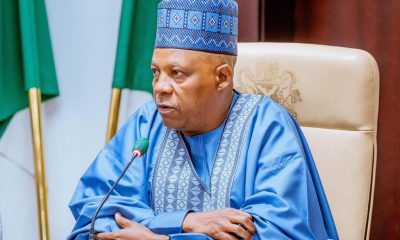NEWS
FG’s Decision to Drop Compulsory Maths for Arts Students Sparks Fierce Academic Controversy

The Federal Government’s recent decision to remove Mathematics as a compulsory admission requirement for arts and humanities students has sparked a major controversy, with university lecturers warning the policy could lead to long-term intellectual damage for Nigerian graduates.
Dependable NG reports that the Federal Ministry of Education announced the reform on Tuesday through its spokesperson, Folasade Boriowo. The new policy states that senior secondary school students in the arts and humanities will no longer be required to secure a credit pass in Mathematics in their Senior School Certificate Examination (SSCE) for tertiary admissions. While the government aims to increase access and inclusion, the academic community remains sharply divided over its potential to weaken academic standards.
A Retreat from Rigour: Lecturers Speak Out
Many academics have strongly criticised the move, arguing that dropping the Mathematics requirement is a misguided attempt to solve a deeper teaching problem.
Dr. Kabiru Danladi Lawanti, a senior lecturer at Ahmadu Bello University (ABU), Zaria, offered the most pointed critique, stating that removing the subject is like “treating a headache by cutting off the head.” He insisted that the decision “quietly erodes something far more precious than numbers—our ability to think,” arguing that Mathematics is fundamentally the “discipline of logic, the grammar of reasoning, and the architecture of problem-solving.”
Lawanti stressed that every field, from painting to law, is rooted in mathematical thinking. “When we remove it from the educational foundation of the arts and humanities, we are not making life easier for students, we are simply making their minds weaker,” he cautioned, adding that the goal should be to make the subject meaningful, not optional.
Dr. Ashir Tukur Inuwa, a lecturer at Bayero University, Kano, echoed this view, calling the official announcement a “problem.” He predicted the policy would lead to complacency among students with “maths phobia,” causing them to pay no attention in class once they know it is no longer required for admission. Dr. Inuwa maintained that Mathematics is an essential life skill that should be compulsory in every field.
Similarly, Mr. Ibrahim Shittu of ABU, Zaria, warned students that they might regret skipping the subject later in life when they encounter jobs requiring computational competence. He also noted that courses like Economics, which are popular among arts students, would struggle to accommodate a compromise in entry requirements that rely heavily on mathematical understanding.
Students Applaud the New Policy
In contrast to the academic warnings, the new policy has been met with jubilation by many secondary school students and young people. They believe the subject is unnecessary for arts and humanities careers.
Aliu Ibrahim, a representative of the excited students, argued that “Basic counting knowledge is what we need as students of humanity and arts. The rest is waste of time.”
The debate now centres on the long-term cost of this relief: whether the government’s pursuit of inclusivity will ultimately lead to a generation of graduates who, in Dr. Lawanti’s words, “can feel deeply but think shallowly.”












